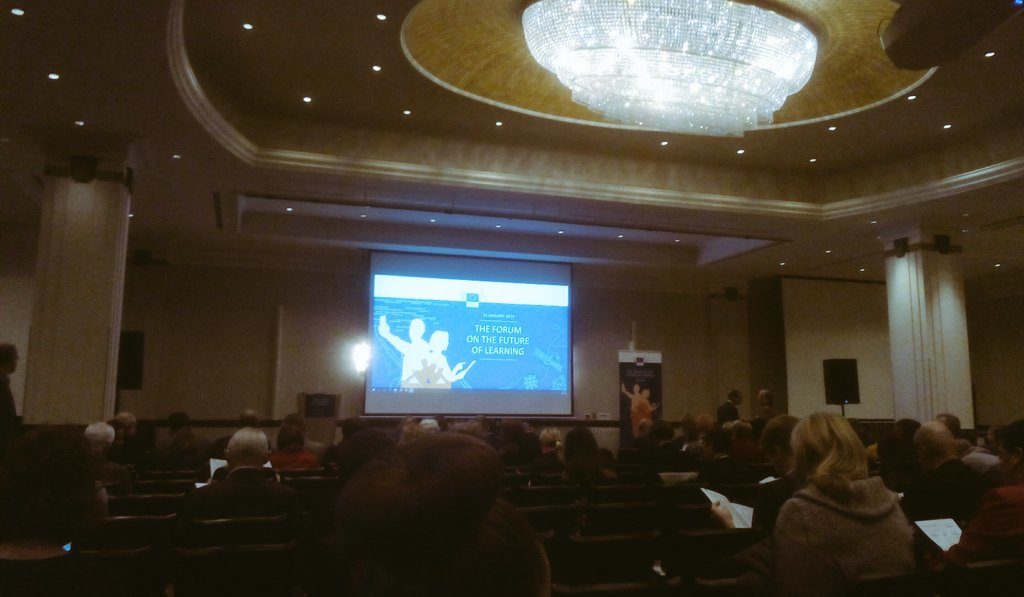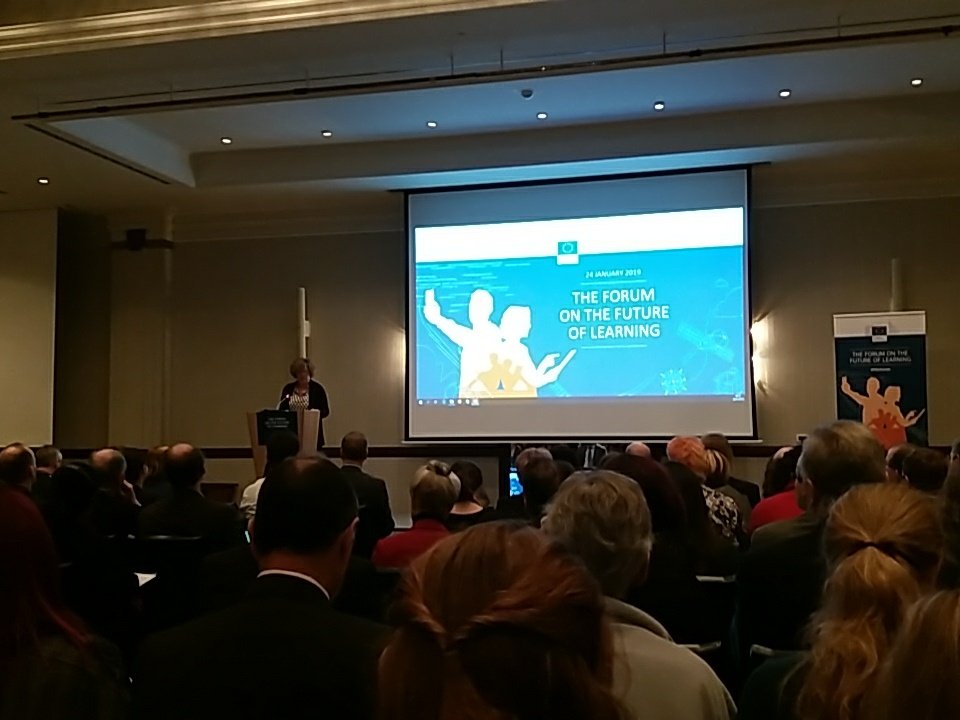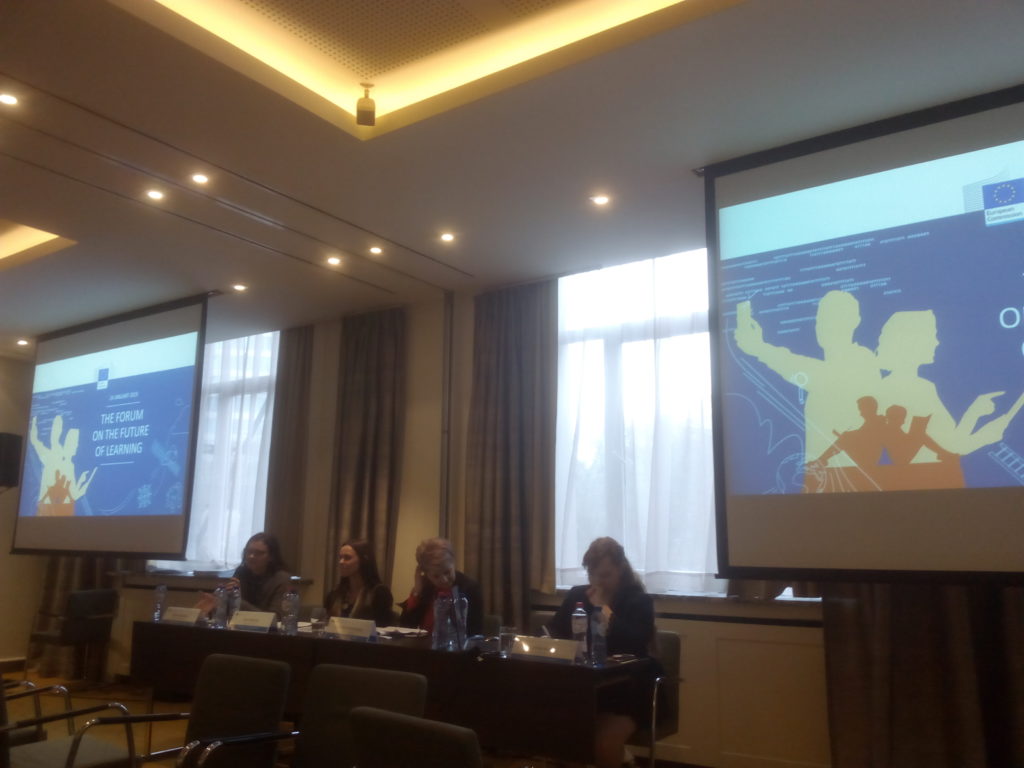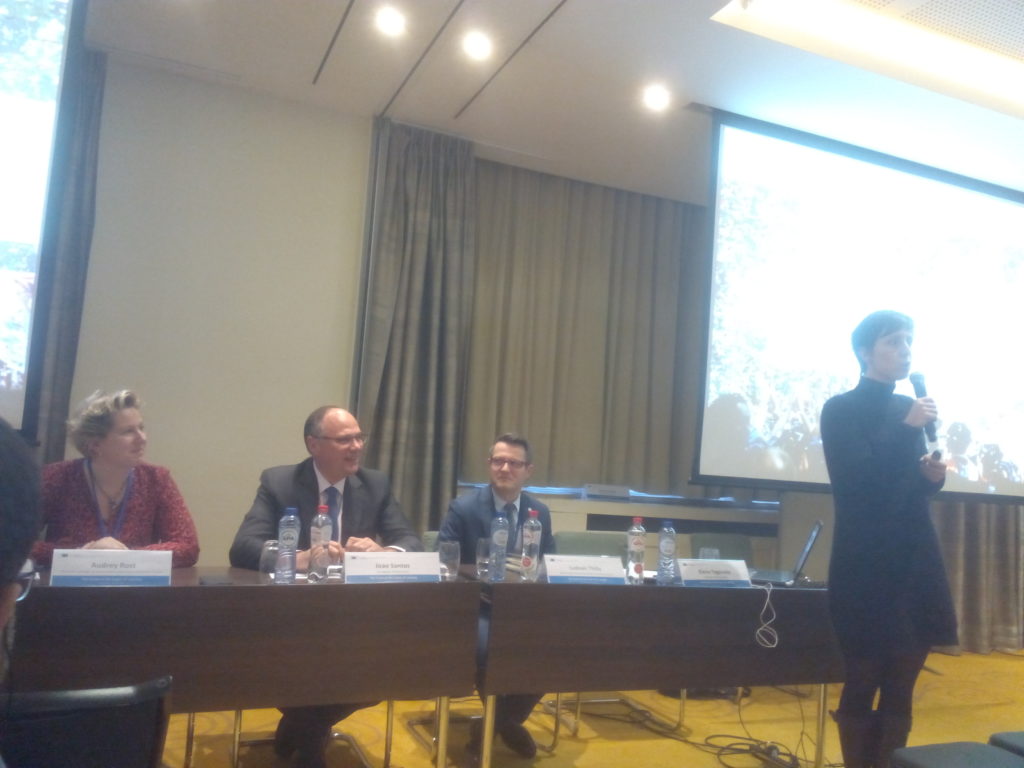Education Stakeholders and Policy Makers Met in Brussels for the Forum on the Future of Learning
28/01/2019

“The best prepared children are the ones that will bring change to our society, those able to anticipate future challenges.”
Ecaterina Andronescu, Romanian Minister of Education
On 24 January 2019, the European Commission hosted the Forum on the Future of Learning in Brussels. The event focused on six key challenges for education and training up to 2030, revolving around demographics; inclusion; technological changes and the future of work; digitalisation; sustainability; and investment and governance. The goal was to provide an open platform to foster exchange between education, training and youth stakeholders and policymakers, building on the work of the European Education and Training Expert Panel, made up of independent experts across Europe.
The forum was opened by Tibor Navracsics, Commissioner for Education, Culture, Youth and Sport, who stated that “today’s education is tomorrow’s society” and that the next five years will be crucial for Europe in this sense. The Commissioner called for inspiration to define a framework for the next ten years, imagining how European societies will be in 2030 taking into account the current and future trends in terms of population, social cohesion, digitalisation, and environmental challenges.
Mr. Navracsics’ speech was followed by keynote interventions by Ecaterina Andronescu (Romanian Minister of Education), who called for cohesion and cohesiveness, and articulated her words around research-based innovation in education, foreign language learning and the essential role of teachers; and Petra Kammerevert (MEP, Chair of the CULT Committee), who focused on free early education for all, transforming students from listeners into actors and integrating art in the education process, and called for an investment of 10% of national GDPs in education to deliver a European Education Area by 2025. Finally, Ms. Gina Ebner (President of the Lifelong Learning Platform), representing civil society, insisted in the importance of combining top-down and bottom-up approaches to foster both innovation and participation, putting the learner at the centre, shifting from education to learning: “People will pay for education, but will they pay for learning?”
Working group sessions followed with a focus on the six forum priorities, based on the issue papers elaborated by the European Education and Training Expert Panel(still in draft phase). These documents will identify the major societal developments that will impact the delivery of education and training in Europe in the long term, addressing how European cooperation can best respond to them. They will also lead the path to set the strategic objectives, areas and topics that European cooperation will tackle in the next ten years.
During the afternoon sessions, future-oriented projects were introduced, both EU-born initiatives (European Universities, VET Centres of Excellence) and EU-funded projects tackling inclusion, digitalisation, and citizenship. The day was closed by Ms. Manuela Geleng, Director for Skills at DG EMPL and Mr. Stefaan Hermans, Director for Policy Strategy and Evaluation at DG EAC.
Following the Forum, the European Commission’s DG EAC hosted the Civil Society Day on 25 January 2019, during which a world café session allowed different stakeholders to share their visions about the future ten-year framework for education and training and make recommendations. EARLALL was present at both the Forum and the Civil Society Day, supporting a regional and local-aware perspective and strengthening ties between all the areas of the education and training sector (VET, adult learning, integration of third‑country nationals, etc.), as well as between formal, non-formal and informal learning.
Useful Links
- Printed version
- Forum on the Future of Learning official website
- Opening remarks by Tibor Navracsics
- European Education Area
- #FOLForum







